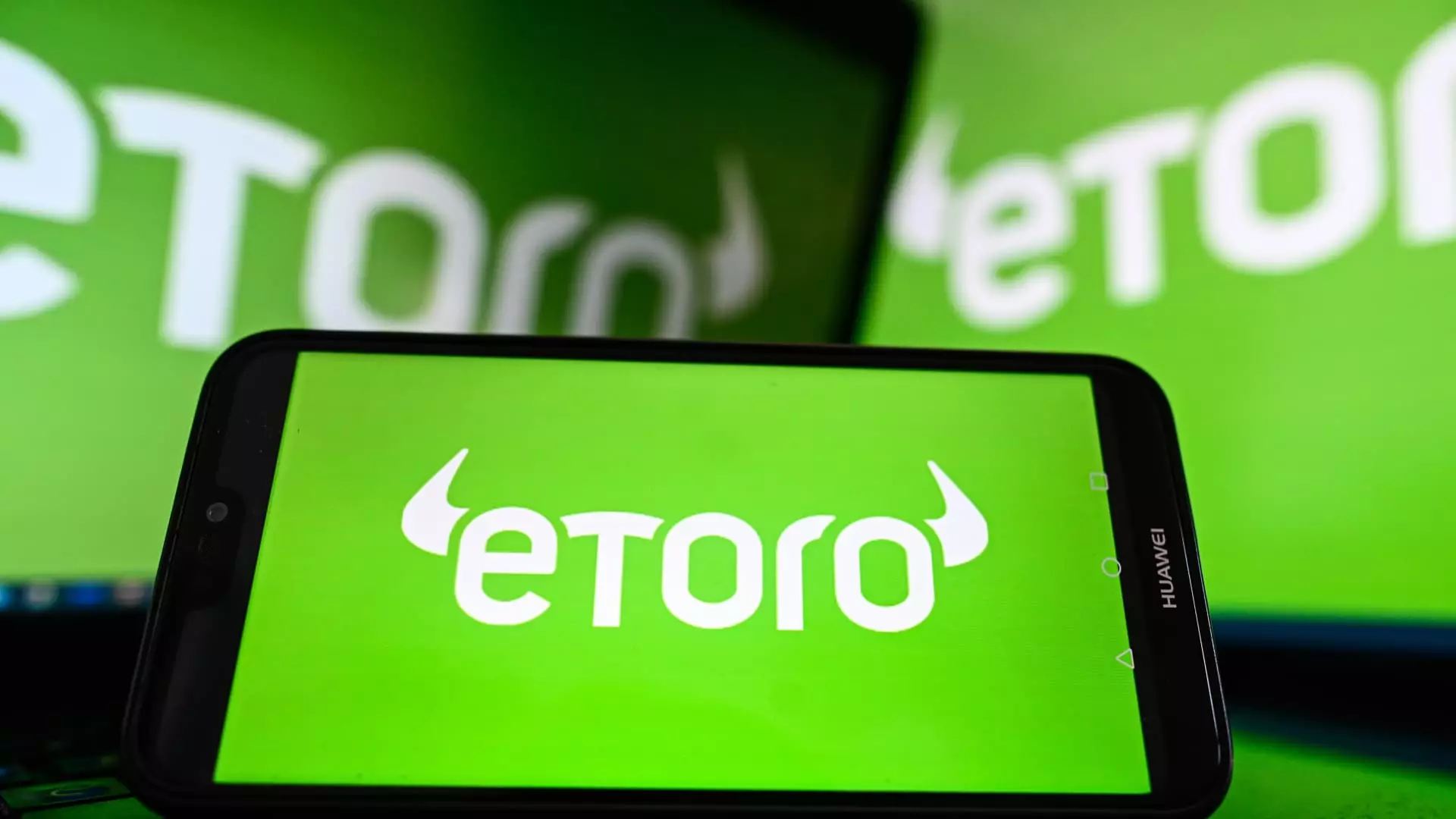The financial world has witnessed a wave of excitement with eToro’s recent debut on the Nasdaq, as the brokerage platform saw its stock price surge by an astonishing 34% following its initial public offering. Raising approximately $310 million, eToro opened its trading at a striking price of $69.69—signifying a robust market cap of $5.6 billion. This performance not only captivates the imaginations of shareholders but also signals a potential renaissance for the IPO landscape, which had been languishing in a state of drought following a tumultuous market correction.
Investors are keenly observing eToro, as many see this offering as a barometer for renewed enthusiasm toward initial public offerings. The backdrop is laden with market volatility, influenced heavily by global events including the anticipated resurgence of political figures like Donald Trump, whose return to the Oval Office could have significant implications for economic policies.
The Competitive Landscape
Positioned as a noteworthy competitor to the trading app Robinhood, eToro’s IPO is significant within a growing fintech sector that continues to attract investment interest. The company recently sold nearly six million shares at $52 each, exceeding the pre-offer expectations. As companies like Chime and Hinge Health file for their own IPOs, eToro’s strong market entry raises questions about the sustainability of this renewed fervor for public offerings.
Market observers are also watching closely as eToro’s strategies unfold. With a strong focus on cryptocurrencies—an area where the brokerage has seen triple-digit growth in revenue—there’s clear evidence that eToro is attempting to carve out its niche amid a rapidly evolving financial landscape. Their diversification strategy, moving beyond traditional trading, positions them as innovators in an industry often accused of stagnation.
Strategic Timing amid Market Uncertainty
CEO Yoni Assia candidly expressed optimism regarding the market’s trajectory, emphasizing that the firm felt it was finally witnessing “the light at the end of the tunnel” vis-à-vis the correction. However, one must tread carefully: market psychology can frequently shift, influenced by geopolitical uncertainties or economic shocks. Assia noted that stabilization in the CBOE Volatility Index was a significant factor in timing their IPO, requesting that stakeholders remain cautious as market dynamics continue to change.
While the enthusiasm surrounding eToro’s IPO is wholly justified, it’s essential to temper expectations. A single public offering’s success does not necessarily herald an unshakeable market recovery. The path to sustained growth will depend on a multitude of factors beyond a mere surge in stock price; long-term profitability, user retention, regulatory compliance, and adaptability to emerging market conditions will ultimately dictate eToro’s success or failure.
Financial Performance Metrics
Turning to eToro’s impressive financials, what stands out is the company’s remarkable growth in net income, a thirteenfold increase to $192.4 million over the preceding year. This kind of growth, amid a climate where many fintech firms are facing headwinds, showcases eToro’s operational efficacy and unique positioning in the digital trading space.
Moreover, the rapid expansion of their cryptocurrency business—now accounting for one-quarter of the firm’s net trading contribution—indicates a robust adaptation to consumer trends favoring digital assets. This shift is critical, as the financial landscape continues to grapple with a changing profile of investors who are increasingly leaning towards tech-driven trading solutions.
Investor Sentiment and Future Outlook
Among eToro’s investors, Spark Capital stands out, holding a 14% stake post-offering, while the strategic moves made by the firm’s leadership hint at solid governance structures in place. As markets remain turbulent, the importance of having well-aligned stakeholders and a clear vision cannot be overstated.
However, while the current sentiment towards eToro is overwhelmingly positive, a cautious approach is warranted. The financial markets operate in cycles—what goes up can easily come down. As a central tenant of any thriving economy, it’s crucial for eToro, and others, to remain vigilant and agile in responding to shifts in investor behavior and regulatory landscapes. Investors and market watchers alike will be keen to see how eToro leverages its strengths and navigates the challenges that lie ahead in a landscape brimming with both opportunity and uncertainty.

